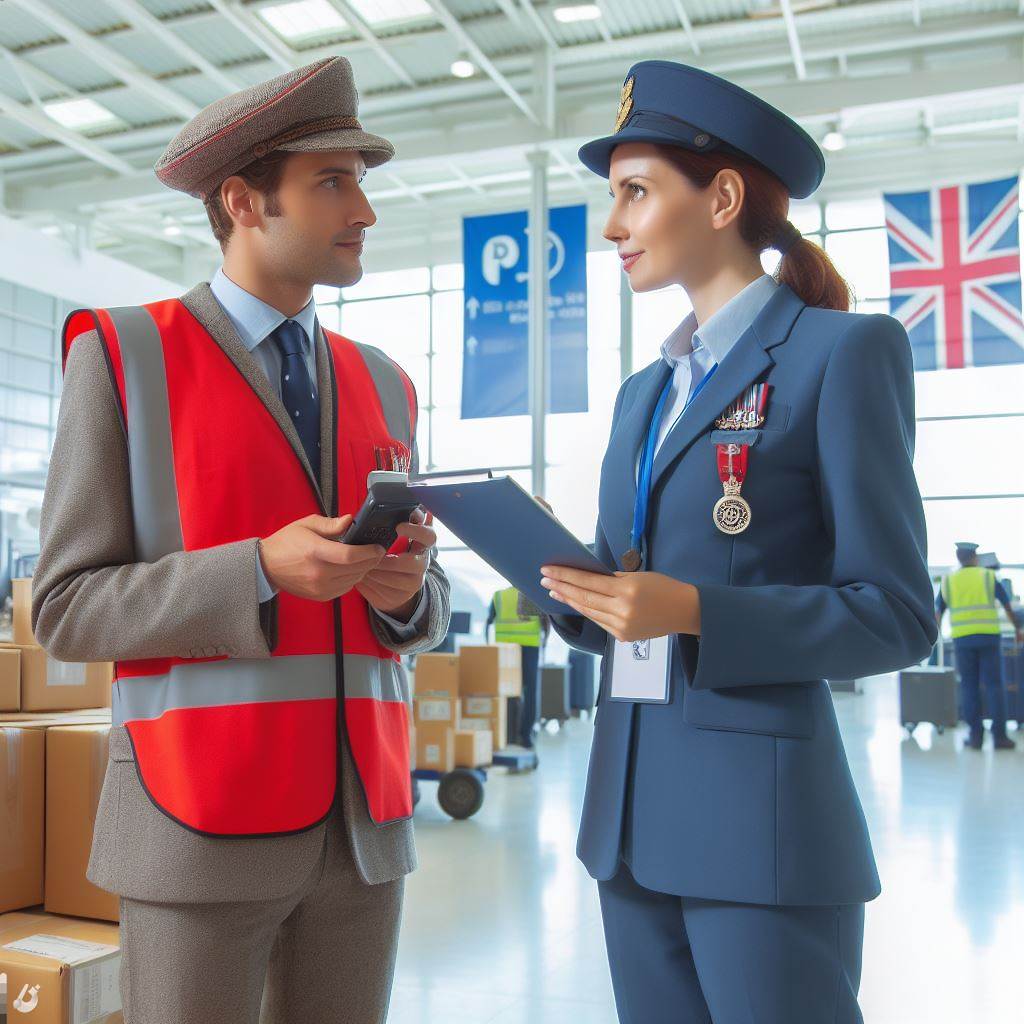Introduction
Retiring as a pilot in the UK is a significant milestone in an aviator’s career.
It is essential to discuss this topic as it impacts the lives of many professionals in the aviation industry.
“Retiring as a Pilot in the UK: A Look Ahead” beckons us to contemplate the intricate tapestry woven by years of navigating the azure expanses.
Beyond the obvious cessation of flight operations, this transition resonates with a mosaic of emotions, logistical intricacies, and profound reflections on a career spent amidst the clouds.
This blog post will provide an overview of the current retirement scenario for pilots in the UK and discuss future prospects.
In this comprehensive exploration, we navigate the complex airspace of financial planning, the social landscape of post-career relationships, and the introspective skies of personal fulfillment.
Join us as we embark on a holistic journey, soaring beyond the horizon, offering a panoramic view of what lies ahead for those gracefully descending from the cockpit to the fertile grounds of retirement.
Current State of Pilots’ Retirement in the UK
Retirement age for pilots in the UK varies, but the typical retirement age is around 65.
Regulatory authorities impose a mandatory retirement age for pilots, which is usually between 60 and 65 years.
There are specific retirement benefits and pension plans available for pilots, such as the British Airways’ Airways Pension Scheme (APS).
Pilots face several challenges related to retirement, including adjusting to a new lifestyle, loss of professional identity, and financial considerations.
Typical Retirement Age for Pilots in the UK
Pilots in the UK generally retire around the age of 65. However, this age can vary depending on individual circumstances and career choices.
While some pilots choose to retire at the age of 60, others may decide to continue flying until they reach their late 60s or even early 70s, depending on their health and the airline’s policies.
It is important for pilots to be aware of the retirement age requirements and plan accordingly to ensure a smooth transition into retirement.
Mandatory Retirement Age Imposed by Regulatory Authorities
Regulatory authorities in the UK impose a mandatory retirement age for pilots, which is primarily based on safety concerns.
Personalized UK Career Consulting
Receive tailored career guidance designed just for you. Get actionable steps and expert support to boost your career in 1-3 days. Take control of your career now.
Get StartedThe Civil Aviation Authority (CAA) sets the mandatory retirement age, which is typically between 60 and 65 years.
This age limit ensures that pilots maintain their physical and cognitive abilities to operate an aircraft safely.
Pilots who reach the mandatory retirement age may be required to transition to non-flying roles or retire from the airline altogether.
Retirement Benefits and Pension Plans for Pilots
Pilots in the UK are often entitled to retirement benefits and pension plans provided by their airline or through industry-wide schemes.
For example, British Airways offers the Airways Pension Scheme (APS), which provides a pension based on a combination of years of service and the salary at retirement.
These pension plans play a crucial role in providing pilots with a stable income during their retirement years, allowing them to maintain their standard of living.
Challenges Faced by Pilots related to Retirement
Retirement can pose various challenges for pilots, both from a personal and professional standpoint.
One of the main challenges is adjusting to a new lifestyle after spending years in a high-pressure work environment.
Pilots need to find new ways to occupy their time and define their identities outside of their flying careers.
Additionally, pilots may face financial considerations, especially if they did not adequately plan for retirement.
It is crucial for pilots to seek professional advice and manage their finances wisely to ensure a comfortable retirement.
Furthermore, the loss of professional identity and the sense of camaraderie among fellow pilots can also be challenging.
Pilots should actively seek support networks and find new hobbies or interests to maintain a fulfilling life after retirement.
In short, pilots in the UK typically retire around the age of 65, with a mandatory retirement age between 60 and 65 imposed by regulatory authorities.
Your Dream Job Starts with a Perfect CV
Get a tailored CV and cover letter that captures your unique strengths and stands out in your industry. Let us help you make an unforgettable first impression.
Get StartedRetirement benefits and pension plans, such as the Airways Pension Scheme, are available to provide pilots with financial security.
However, retirement also brings challenges such as adjusting to a new lifestyle and managing finances.
It is essential for pilots to plan and prepare for retirement to ensure a smooth transition and a fulfilling life beyond their flying careers.
Read: UK Pilots’ Health and Fitness Standards
Transitioning from Pilot to Retirement
The emotional and psychological aspects of transitioning from an active pilot to retirement
As pilots near the end of their careers, they must prepare themselves for the emotional and psychological aspects of transitioning from an active pilot to retirement.
This transition can be challenging, as the lifestyle and identity of being a pilot are deeply ingrained.
Factors that pilots need to consider when planning for retirement
Here are some factors that pilots need to consider when planning for retirement:
1. Loss of Identity
Pilots often identify themselves strongly with their profession, and retiring can lead to a loss of identity.
It is essential to find new ways to define oneself and establish a sense of purpose outside of flying.
2. Emotional Adjustment
Retiring as a pilot can bring about a mix of emotions, including relief, excitement, and a sense of loss.
Pilots should be prepared to navigate these emotions and seek support if needed.
3. Financial Planning
Throughout their careers, pilots must prioritize financial planning and saving for retirement.
Proper financial planning can help ensure a comfortable retirement and provide security for the future.
4. Pension Options
Pilots should explore different pension options available to them and evaluate which plan best suits their needs.
Optimize Your LinkedIn for Success
Boost your LinkedIn profile with a professional bio, keyword-rich headline, and strategic recommendations that attract recruiters. Stand out from the crowd and get noticed.
Optimize NowConsulting with a financial advisor can help pilots make informed decisions regarding pensions.
5. Healthcare Coverage
Pilots should investigate healthcare options and determine how they will be covered after retirement.
Understanding the costs and coverage provided by different plans is crucial for maintaining good health in retirement.
6. Social Networks
Pilots often have strong social networks within their profession.
Retiring pilots should consider ways to maintain connections and build new social networks outside of their flying careers.
7. Hobbies and Interests
It is essential for pilots to develop hobbies and interests outside of flying to fill their time and provide a sense of purpose in retirement.
Exploring new passions can be both fulfilling and rewarding.
8. Family Time
Retirement provides an opportunity for pilots to spend more time with their families.
Pilots should plan for how they will prioritize and make the most of this valuable time.
9. Fulfilling Dreams
Retirement allows pilots to fulfill dreams they may have put on hold during their flying careers.
Whether it’s traveling, starting a new business, or pursuing further education, retirement opens up new avenues for personal growth and fulfillment.
10. Flight License Renewal
Pilots must be aware of any additional steps or requirements they need to fulfill during the transition to retirement.
This may include keeping up with flight license renewals or completing any necessary medical examinations.
In fact, transitioning from an active pilot to retirement requires careful consideration of emotional, psychological, and financial aspects.
Pilots should prioritize planning for retirement, including financial planning, exploring pension options, and maintaining a healthy lifestyle.
By preparing for this transition, pilots can ensure a smooth shift into the next phase of their lives and embrace the opportunities that retirement has to offer.
Read: Women in Aviation: UK Pilot Perspectives

Options and Opportunities for Retired Pilots
Retiring as a pilot can be both an exciting and daunting prospect.
After dedicating a significant part of your life to flying, it is natural to wonder what the next section holds.
Fortunately, there are numerous options and opportunities available for retired pilots, both within and outside the aviation industry.
This blog section will explore some of these possibilities and provide guidance on how to make the most of your retirement.
Potential Career or Business Options
Retirement doesn’t necessarily mean the end of your professional journey.
As a retired pilot, you possess valuable skills and experience that can be applied to various career paths.
One option is to consider a role as a flight instructor or consultant.
Sharing your knowledge and expertise with aspiring pilots can be incredibly fulfilling, and it allows you to stay connected to the aviation industry.
Another possibility is to establish a business related to aviation.
This could involve starting a flight training center, organizing aviation events, or even launching your own airline.
Your understanding of the industry and your network within it can be advantageous in making such ventures successful.
Stay Connected with the Aviation Industry
Retirement doesn’t mean severing ties with the world of aviation. If you wish to remain involved, there are numerous opportunities to stay connected.
Becoming a flight instructor allows you to continue working with airplanes and share your passion for flying.
Additionally, you can offer consultancy services to airlines or aviation companies, providing them with insights and advice based on your years of experience.
Consider Alternative Employment Options
While many retired pilots choose to stay within the aviation industry, others opt for a change of scenery.
It’s essential to recognize that your skills and expertise extend beyond aviation alone.
There are numerous career options outside the industry that may align with your interests and capabilities.
For example, you may consider working as a corporate pilot for a company or even taking up a leadership role in aviation-related organizations.
Alternatively, if you have developed a passion for writing or public speaking, you could become a aviation journalist or motivational speaker, sharing your experiences and knowledge with a broader audience.
Resources and Support
As a retired pilot, it’s important to take advantage of the resources and support available to make the transition into retirement smoother.
There are several organizations dedicated to catering to the needs of retired pilots, providing guidance on financial planning, healthcare, and social activities.
One such organization is the Retired Airline Pilots Association, which offers a range of services, including networking events, job placement assistance, and access to exclusive benefits.
Additionally, online communities and forums provide a platform for retired pilots to connect, share advice, and seek support from like-minded individuals who have undergone similar transitions.
Retiring as a pilot opens up a world of possibilities.
Whether you choose to embark on a new career journey, stay connected with the aviation industry, or explore alternative employment options, there is no shortage of opportunities for retired pilots.
By tapping into the resources and support available, you can make the most of your retirement and continue to lead a fulfilling and purposeful life.
Read: The Future of Piloting in the UK
Future Outlook for Pilots’ Retirement in the UK
Projected changes or trends related to pilots’ retirement in the UK
The future outlook for pilots’ retirement in the UK is subject to various projected changes and trends in the industry.
One potential change is the increasing use of automation in aircraft, which could lead to a reduced demand for pilots in the future.
Advancements in technology and the development of autonomous aircraft may result in a shift towards a smaller workforce of pilots.
Potential challenges or opportunities that may arise in the future
This could present both challenges and opportunities for pilots nearing retirement age. On one hand, there may be fewer job opportunities available.
However, this could also create new opportunities for pilots to transition into other roles within the aviation sector, such as training or safety management.
Changes in regulations and market demands can also impact pilots’ retirement prospects.
For example, new regulations on age limits for flying could affect the retirement age for pilots.
Market demands for air travel can also influence the demand for pilots and subsequently their retirement options.
Fluctuations in the industry can impact job security for pilots.
Ongoing discussions or initiatives to address pilots’ retirement issues
As the aviation industry evolves, it is important for ongoing discussions and initiatives to address pilots’ retirement issues.
One such initiative is the recognition of the need for pilots to stay active and engaged in their retirement years.
Airlines and aviation organizations are working to create programs and opportunities for retired pilots to continue contributing in some capacity.
This can include mentoring programs for new pilots, involvement in safety committees, or consulting roles to share their expertise.
These initiatives not only provide a sense of purpose for retired pilots but also allow them to pass on their knowledge and experience to the next generation.
Overall, the future outlook for pilots’ retirement in the UK is subject to various factors, including advancements in technology, regulatory changes, and market demands.
While there may be challenges in terms of reduced job opportunities, there are also opportunities for retired pilots to continue contributing to the aviation industry in other capacities.
Read: UK Pilot Work-Life Balance: What to Expect
Conclusion
Throughout this blog post, we have discussed the various aspects of retiring as a pilot in the UK.
We have explored the challenges and opportunities that come with this transition, as well as the importance of proper planning.
It is crucial for pilots to start planning for their retirement early on in their careers.
From understanding pension options to evaluating financial considerations, being proactive is key.
By carefully considering and managing their finances, pilots can ensure a comfortable and secure retirement.
Additionally, staying informed and connected with relevant resources and organizations is essential.
Pilots should take advantage of support networks, such as pilot associations and retirement seminars, to gain valuable insights and guidance.
These resources can provide up-to-date information on changes in regulations, pension schemes, and employment opportunities.
Retiring as a pilot in the UK requires careful planning and preparation.
By taking the necessary steps to assess their financial situation, pilots can have peace of mind and enjoy a comfortable retirement.
It is essential to stay informed, connected, and proactive in order to navigate the challenges and make the most of the opportunities that arise.
As you embark on your retirement journey, remember to embrace the positive aspects that come with this new chapter in your life.
Take the time to reflect on your accomplishments and the fulfilling experiences you had as a pilot.
Look forward to new adventures and opportunities that await you.
We encourage you to continue seeking information and support from the relevant resources and organizations available.
Stay educated, connected, and engaged, making the most of your retirement years.
Remember, retirement as a pilot is just the beginning of a new and exciting phase in life!
[E-Book for Sale]
500 Cutting-Edge Tech Startup Ideas for 2024 & 2025: Innovate, Create, Dominate
$19.99 • 500 Tech Startup Ideas • 62 pages
You will get inspired with 500 innovative tech startup ideas for 2024 and 2025, complete with concise descriptions to help you kickstart your entrepreneurial journey in AI, Blockchain, IoT, Fintech, and AR/VR.




